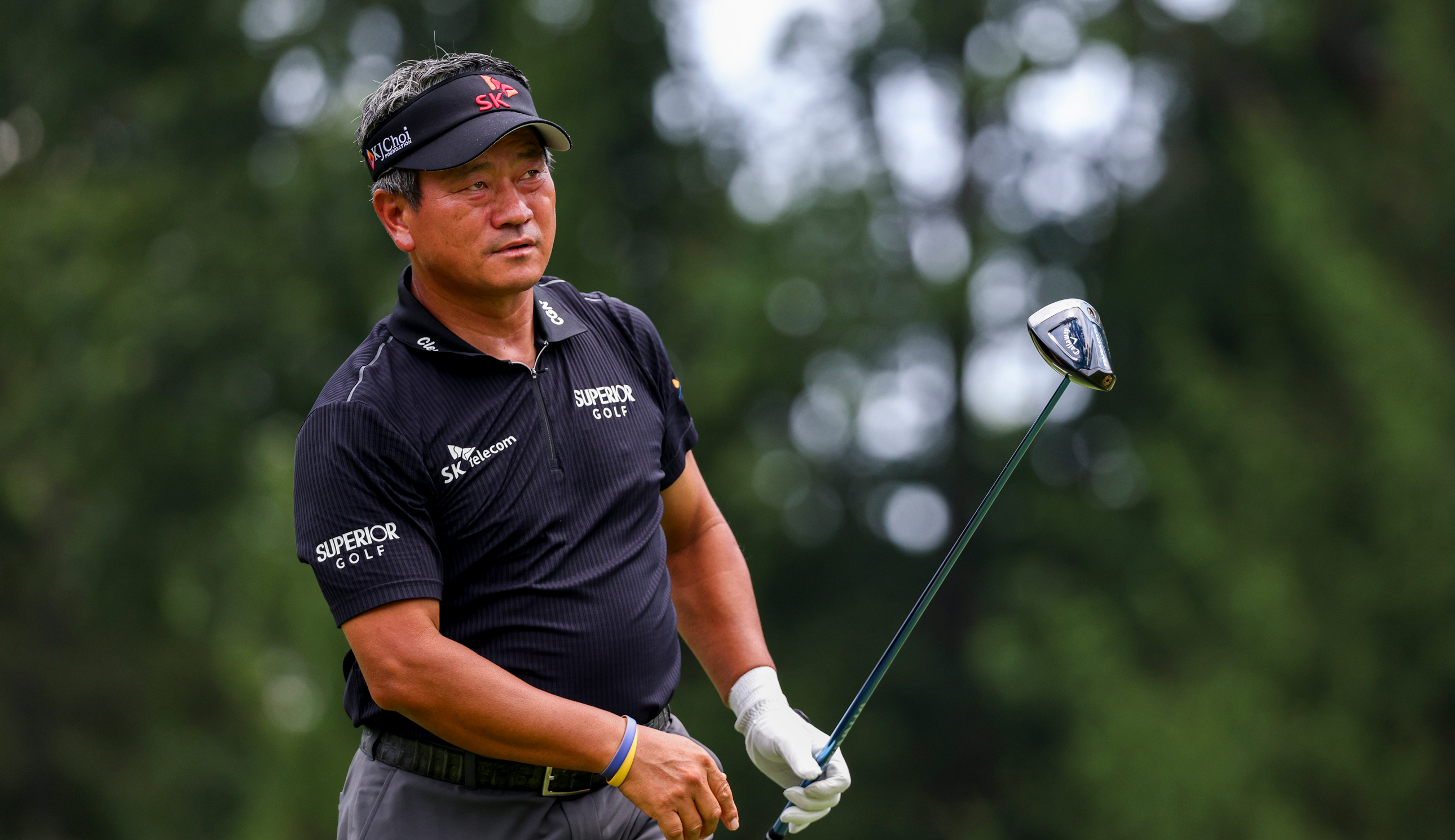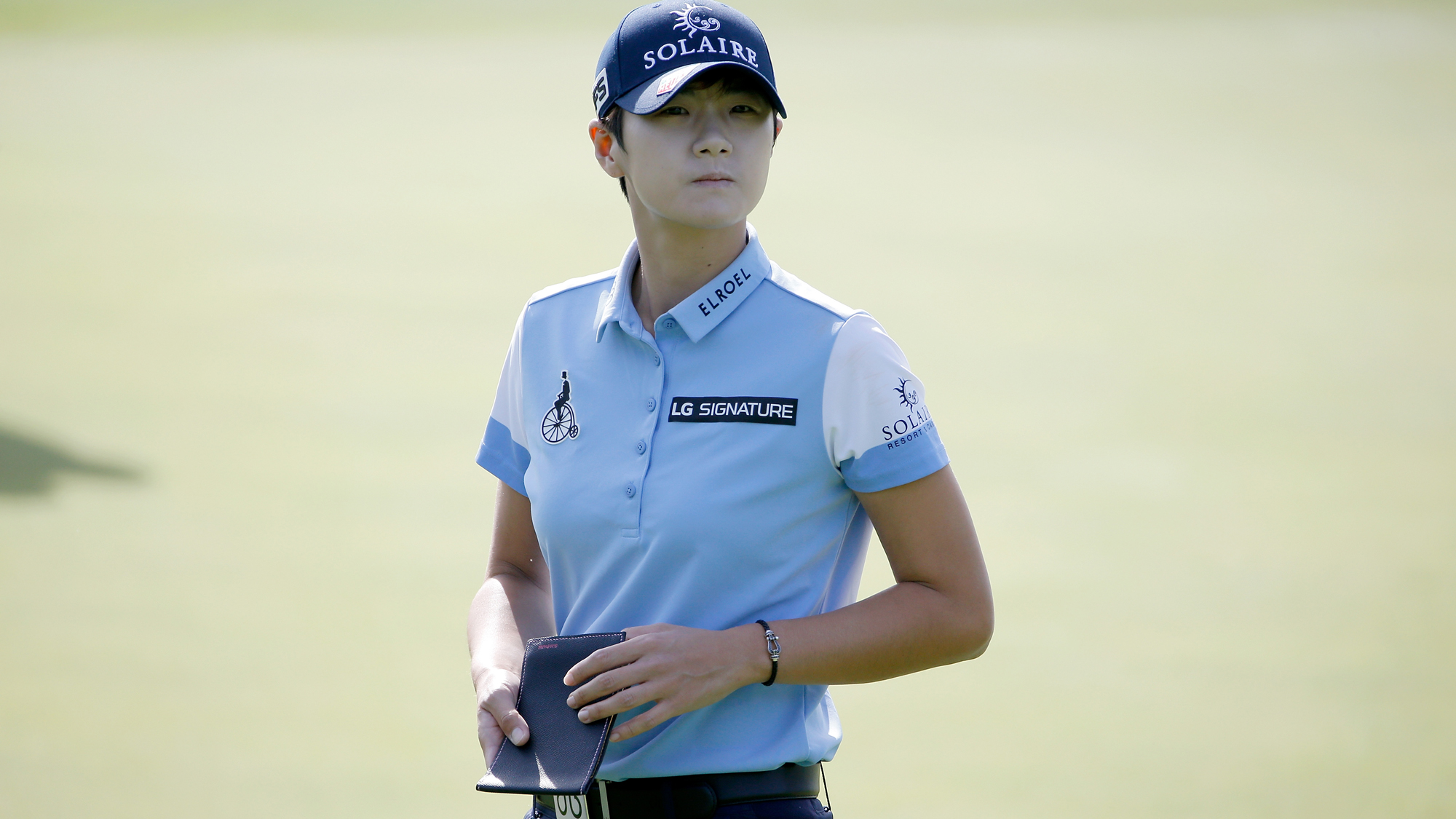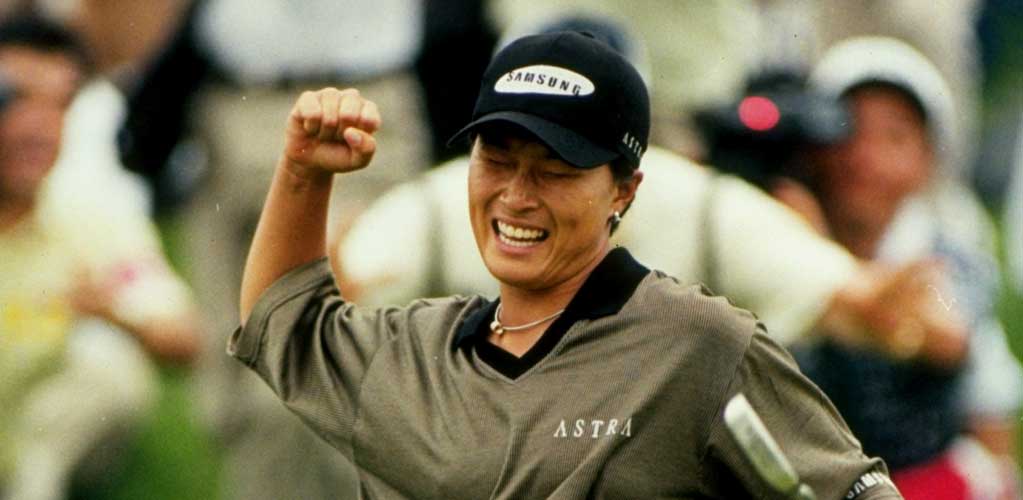South Korea has produced some of the world’s most successful and influential golfers, known for their discipline, precision, and dominance on global tours, especially the LPGA.
This article breaks down the 10 greatest South Korean golfers, explaining what makes each player iconic, their major championship wins, historical achievements, and how they’ve helped define South Korea as a global golf powerhouse.
In this guide, you will learn:
-
Why Korean golfers dominate the LPGA
-
The achievements of legendary players like Pak Se-ri, Park In-bee, and Kim Sei-young
-
How Korea became the most successful women’s golf nation
-
What younger golfers have inherited from previous generations
-
How these athletes influenced training systems, coaching, and golf culture
The Rise of South Korean Golf Excellence: A Legacy of Champions
When Se Ri Pak stepped onto the 18th green at Blackwolf Run in 1998, few could have predicted how that moment would transform the landscape of professional golf forever. South Korea's emergence as a golfing powerhouse represents one of the most remarkable stories in sports history, moving from a country with little golf tradition to becoming a dominant force in professional golf, particularly in the women's game.
Over the past quarter-century, South Korean golfers have revolutionized the sport through their dedication to technical precision, mental fortitude, and relentless pursuit of excellence. Their impact extends far beyond tournament victories, fundamentally changing how the game is taught, practiced, and played at the highest level. The methodical approach to golf development pioneered by Korean players and coaches has become a blueprint studied and emulated worldwide.
In selecting the greatest South Korean golfers of all time, we've considered multiple factors: major championship victories that define careers, overall tournament wins that demonstrate consistency, lasting impact on the sport's development, and historical significance in breaking barriers. These criteria help us understand not just who won the most, but who truly shaped the game's evolution.
1. Se Ri Pak: The Pioneer Who Changed Everything
The story of South Korean golf cannot be told without Se Ri Pak. Her victory at the 1998 U.S. Women's Open, secured in an dramatic 20-hole playoff while wearing men's football cleats for better traction, became a watershed moment in golf history. The image of Pak removing her shoes to wade into a water hazard during that tournament became iconic, symbolizing the determination that would characterize Korean golf for generations to come.
Pak's career numbers tell an impressive story: five major championships and 25 LPGA Tour victories. But her true legacy lies in what became known as the "Se Ri Kids" – a generation of Korean golfers who took up the game after watching her success. Her 1998 rookie season, which included two major victories, inspired countless young South Korean women to pursue professional golf, fundamentally altering the sport's global landscape. Her 2007 induction into the World Golf Hall of Fame certified her status not just as a champion, but as a transformative figure in golf history.
2. Inbee Park: The Queen of Major Championships
If Se Ri Pak opened the door for South Korean golf, Inbee Park walked through it and redecorated the entire house. Her career represents the full flowering of Korean golf excellence, highlighted by achievements that place her among the greatest players in history regardless of nationality. Park's seven major championships showcase her ability to perform at the highest level in golf's most pressurized moments, but it's her 2016 Olympic gold medal in Rio that perhaps best symbolizes her role as Korean golf's global ambassador.
Park's 2013 season stands as one of the most remarkable in golf history, as she captured the first three major championships of the year, a feat that hadn't been accomplished since Babe Zaharias in 1950. Her eventual career Grand Slam confirmed her complete mastery of every aspect of championship golf. Her induction into the World Golf Hall of Fame in 2016 at age 27 made her the youngest ever inductee, recognizing not just her achievements but her role in elevating women's golf to new heights of technical and tactical sophistication.

3. K.J. Choi: Breaking Barriers on the PGA Tour
While Se Ri Pak was revolutionizing women's golf, K.J. Choi was quietly crafting his own pioneering path in the men's game. Coming from humble beginnings as the son of a rice farmer, Choi's journey to becoming Asia's most successful male golfer serves as an inspiring testament to perseverance. His breakthrough victory at the 2000 Korean Open marked the beginning of an extraordinary career that would reshape expectations for Asian male golfers.
Choi's eight PGA Tour victories, including his signature win at THE PLAYERS Championship in 2011 (often considered golf's unofficial fifth major), demonstrated that Asian players could consistently compete and triumph at the highest level of men's professional golf. His victory at TPC Sawgrass, secured with clutch putting under intense pressure, particularly resonated throughout Asia, proving that the game's biggest prizes were within reach for Asian golfers.
Beyond his victories, Choi's influence extends deep into the fabric of Korean golf. His K.J. Choi Foundation, established in 2007, has provided opportunities for aspiring young golfers and supported various charitable causes, embodying the principle that success in golf should translate to positive social impact. His methodical approach to the game, characterized by meticulous preparation and unwavering focus, became a blueprint for future generations of Korean male golfers.
4. Y.E. Yang: The Tiger Slayer
The 2009 PGA Championship at Hazeltine National Golf Club witnessed what many consider the most significant victory in Asian golf history. Y.E. Yang's triumph over Tiger Woods, overcoming a two-shot deficit in the final round, shattered the aura of invincibility that had surrounded Woods in major championships when leading after 54 holes. This victory represented more than just a tournament win – it symbolized a seismic shift in golf's global power dynamics.
Yang's victory, sealed with a spectacular hybrid shot over a tree to within 10 feet of the hole on the 72nd hole, made him the first Asian-born male player to win a major championship. This achievement opened the floodgates of possibility for Asian male golfers, proving that they could compete and win against the world's best on golf's grandest stages. The image of Yang hoisting his golf bag in celebration became an iconic moment in golf history, representing the triumph of self-belief over intimidation.

5. Sung-hyun Park: Power and Precision Combined
Emerging from the legacy of Se Ri Pak and Inbee Park, Sung-hyun Park represents the evolution of Korean women's golf into its modern form. Her powerful playing style, earning her the nickname "Tiger Woods of the LPGA," brought a new dimension to women's golf. Park's ability to combine raw power with traditional Korean precision helped redefine expectations about how women's professional golf could be played.
Her 2017 season stands as one of the most remarkable rookie campaigns in golf history. Becoming only the second player to win both Rookie of the Year and Player of the Year honors in the same season demonstrated her immediate impact on the LPGA Tour. Her two major championships – the 2017 U.S. Women's Open and 2018 KPMG Women's PGA Championship – showcased her ability to perform at the highest level under intense pressure.
Park's ascent to World No. 1 in November 2017 represented not just personal achievement but the continued evolution of Korean golf excellence. Her aggressive style of play, combined with traditional Korean strengths in short game and mental toughness, has influenced a new generation of players who are unafraid to push the boundaries of what's possible in women's golf.
6. So Yeon Ryu: The Model of Consistency
So Yeon Ryu's career exemplifies the perfect blend of technical excellence and competitive grace that has become a hallmark of Korean golf. Her major championship victories – the 2011 U.S. Women's Open and 2017 ANA Inspiration – tell only part of her story. What truly sets Ryu apart is her remarkable consistency at major championships, where she regularly contends even when not winning, demonstrating the mental fortitude that characterizes the best Korean players.
Rising to World No. 1 in 2017 marked the culmination of years of steady improvement and dedication to her craft. What makes Ryu particularly special is her role as an ambassador for Korean golf. Fluent in English and known for her engaging personality, she has helped bridge cultural gaps and showcase the warmth and sophistication of Korean golf culture to the world. Her commitment to philanthropy, including establishing the So Yeon Ryu-SBS Foundation, reflects the growing influence of Korean golfers beyond the course.
7. Jiyai Shin: The Smiling Assassin
Known for her perpetual smile that masks an intensely competitive spirit, Jiyai Shin's career demonstrates the global reach of Korean golf excellence. Her ascent to World No. 1 in 2010 came through a combination of spectacular play on multiple tours, showcasing the versatility that would define her career. Her major victories – the 2008 Women's British Open and 2012 Women's British Open – highlighted her ability to excel in varying conditions and on different continents.
What sets Shin apart is her success across multiple tours, including the LPGA Tour, Japan LPGA Tour, and Ladies European Tour. This global success helped establish Korean golfers as truly international players capable of winning anywhere in the world. Her early career dominance, including becoming the first Korean to top the LPGA Tour money list in 2009, helped maintain the momentum started by Se Ri Pak and carried forward by subsequent generations.
8. Si Re Pak: The Quiet Revolutionary
While sharing a surname with the legendary Se Ri Pak, Si Re Pak carved out her own significant place in Korean golf history. Her multiple LPGA Tour victories demonstrated the depth of talent emerging from South Korea, proving that the country's golf success wasn't limited to a few exceptional players but represented a systematic development of excellence.
Throughout her career, Pak's consistency served as a model for aspiring Korean golfers. Her approach to the game, characterized by methodical preparation and unwavering focus, embodied the qualities that would become associated with Korean golf excellence. Perhaps her most lasting impact comes through her mentorship of younger players, helping to create a supportive ecosystem that nurtures new talent and maintains Korea's position at the forefront of professional golf.
What makes Pak's contribution particularly meaningful is her role in developing the next generation of Korean golfers. By sharing her experience and wisdom with younger players, she helped create a continuous pipeline of talent that ensures Korean golf's influence will extend far into the future. Her commitment to teaching and mentoring reflects the collective spirit that has made Korean golf such a powerful force in the professional game.
9. In Gee Chun: The Record Breaker
In Gee Chun's career stands as a testament to the technical precision that characterizes Korean golf excellence. Her three major championships – the 2015 U.S. Women's Open, 2016 Evian Championship, and 2022 Women's PGA Championship – each tell a unique story of excellence under pressure. At the 2016 Evian Championship, she set a record for the lowest scoring total in any major championship, men's or women's, with a remarkable 21-under-par performance that showcased the pinnacle of scoring excellence in major championship golf.
What distinguishes Chun is her methodical approach to the game, characterized by an almost scientific precision in practice and preparation. Like many Korean champions before her, she developed her skills by competing successfully across multiple tours, winning on the Korean LPGA, LPGA Tour, and Japan LPGA Tour. This global success demonstrates the adaptability and comprehensive skill set that has become a hallmark of Korean golf excellence.
10. Na Yeon Choi: The Complete Champion
Na Yeon Choi's victory at the 2012 U.S. Women's Open represents a masterclass in major championship golf. Her commanding performance at Blackwolf Run – the same venue where Se Ri Pak had sparked the Korean golf revolution 14 years earlier – symbolically connected two generations of Korean golf excellence. With nine LPGA Tour victories and consistent presence among the world's top-ranked players, Choi exemplifies the high standards and competitive depth that Korean golf has brought to the professional game.
Her impact extends beyond individual achievements. Choi's success helped consolidate Korea's position as a global golf powerhouse, demonstrating that the country's system for developing elite players could consistently produce champions capable of competing at the highest level. Her precise ball-striking and strategic course management reflect the technical excellence that has become synonymous with Korean golf.
The Historical Impact of Korean Golf Excellence
The collective achievement of these players has fundamentally transformed golf culture both within Korea and globally. What began with Se Ri Pak's breakthrough victory has evolved into a comprehensive system of excellence that combines technical precision, mental fortitude, and unwavering dedication to improvement. This approach has reshaped how golf is taught, practiced, and played at the highest level.
The Korean influence on golf instruction has been particularly profound in Asia. The emphasis on fundamentals, detailed technical analysis, and structured practice routines has created a template for developing elite players. This systematic approach to golf development, often beginning in childhood, has been studied and increasingly adopted worldwide, demonstrating the far-reaching impact of Korean golf methodology.
Korean players have also revolutionized the technical aspects of the game. Their collective emphasis on precision, especially in the short game, has raised standards across professional golf. The introduction of advanced training techniques, including the extensive use of video analysis and biomechanical study, has pushed the boundaries of what's possible in golf instruction.
Perhaps most significantly, these players have changed perceptions about what it takes to succeed in professional golf. The combination of technical excellence, mental toughness, and unwavering work ethic that characterizes Korean golf has become a model for aspiring players worldwide. Their success has demonstrated that excellence in golf comes not just from natural talent, but from a systematic, dedicated approach to development and improvement.
People Also Ask
Who is the greatest South Korean golfer of all time?
Pak Se-ri is widely considered the greatest Korean golfer because she sparked the “Se-ri Kids” revolution, won multiple majors, and inspired an entire generation of LPGA stars.
Why are Korean golfers so successful?
A combination of disciplined training, strong mental focus, elite coaching programs, and early exposure to competitive golf has created a system that consistently produces world-class players.
Which Korean golfer has the most major wins?
Park In-bee, with seven major championships, holds the most major titles among Korean golfers.
Do Korean male golfers also have global success?
Yes, though less dominant than Korean women on the LPGA, male golfers like K.J. Choi and Y.E. Yang have made historic achievements, including major victories.
Why Korean Golfers Dominate the World Stage
-
Rigorous training academies
-
Strong mental preparation culture
-
Highly structured junior training
-
Supportive national golf programs
-
Influence of groundbreaking pioneers like Pak Se-ri
South Korea’s dominance in professional golf is no coincidence—it’s the result of talent, discipline, and a powerful cultural shift sparked by legendary pioneers. Whether you’re learning about the icons or exploring the next generation of Korean stars, these athletes represent some of the most influential golfers in modern history.
FAQ Section
1. Who is the most influential Korean golfer ever?
Pak Se-ri — her success inspired the “Se-ri Kids,” a generation that includes multiple world No. 1 players and major champions.
2. Who has the most major championships among Korean golfers?
Park In-bee with seven major titles.
3. Why do so many Korean golfers succeed on the LPGA?
Early training, competitive junior systems, and strong national support create a high-performance environment.
4. Are Korean men competitive on the PGA Tour?
Yes. Y.E. Yang and K.J. Choi paved the way with historic wins and consistent success.
5. Who is the top Korean golfer today?
Ko Jin-young continues to be one of the most consistent players on the LPGA.













